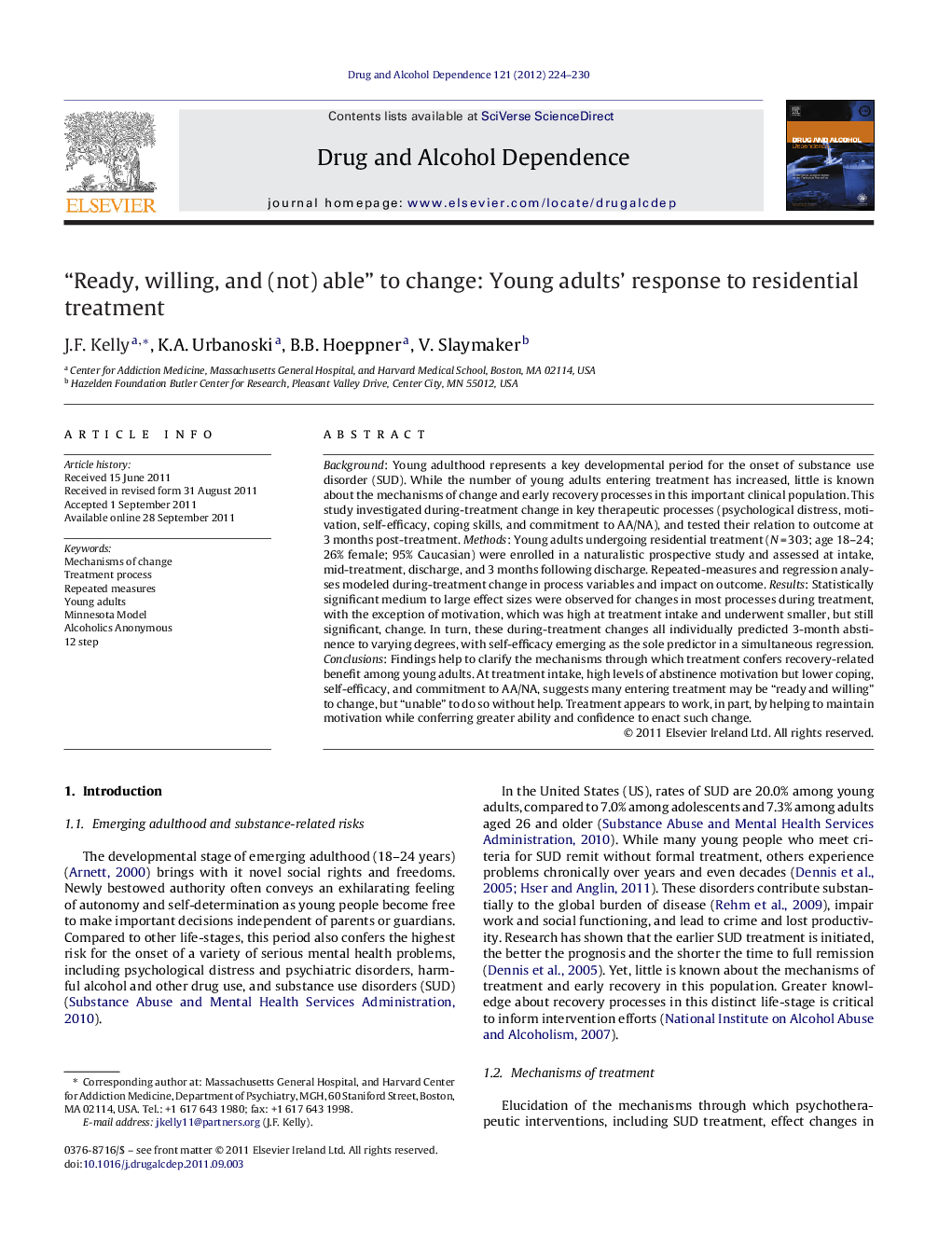| کد مقاله | کد نشریه | سال انتشار | مقاله انگلیسی | نسخه تمام متن |
|---|---|---|---|---|
| 10509657 | 949338 | 2012 | 7 صفحه PDF | دانلود رایگان |
عنوان انگلیسی مقاله ISI
“Ready, willing, and (not) able” to change: Young adults' response to residential treatment
دانلود مقاله + سفارش ترجمه
دانلود مقاله ISI انگلیسی
رایگان برای ایرانیان
کلمات کلیدی
موضوعات مرتبط
علوم زیستی و بیوفناوری
علم عصب شناسی
علوم اعصاب رفتاری
پیش نمایش صفحه اول مقاله

چکیده انگلیسی
Background: Young adulthood represents a key developmental period for the onset of substance use disorder (SUD). While the number of young adults entering treatment has increased, little is known about the mechanisms of change and early recovery processes in this important clinical population. This study investigated during-treatment change in key therapeutic processes (psychological distress, motivation, self-efficacy, coping skills, and commitment to AA/NA), and tested their relation to outcome at 3 months post-treatment. Methods: Young adults undergoing residential treatment (NÂ =Â 303; age 18-24; 26% female; 95% Caucasian) were enrolled in a naturalistic prospective study and assessed at intake, mid-treatment, discharge, and 3 months following discharge. Repeated-measures and regression analyses modeled during-treatment change in process variables and impact on outcome. Results: Statistically significant medium to large effect sizes were observed for changes in most processes during treatment, with the exception of motivation, which was high at treatment intake and underwent smaller, but still significant, change. In turn, these during-treatment changes all individually predicted 3-month abstinence to varying degrees, with self-efficacy emerging as the sole predictor in a simultaneous regression. Conclusions: Findings help to clarify the mechanisms through which treatment confers recovery-related benefit among young adults. At treatment intake, high levels of abstinence motivation but lower coping, self-efficacy, and commitment to AA/NA, suggests many entering treatment may be “ready and willing” to change, but “unable” to do so without help. Treatment appears to work, in part, by helping to maintain motivation while conferring greater ability and confidence to enact such change.
ناشر
Database: Elsevier - ScienceDirect (ساینس دایرکت)
Journal: Drug and Alcohol Dependence - Volume 121, Issue 3, 1 March 2012, Pages 224-230
Journal: Drug and Alcohol Dependence - Volume 121, Issue 3, 1 March 2012, Pages 224-230
نویسندگان
J.F. Kelly, K.A. Urbanoski, B.B. Hoeppner, V. Slaymaker,